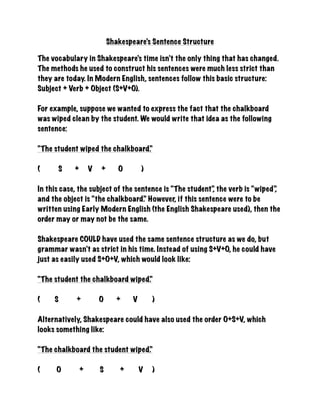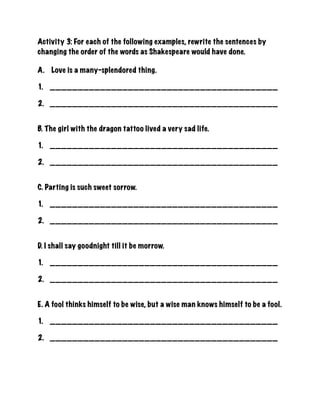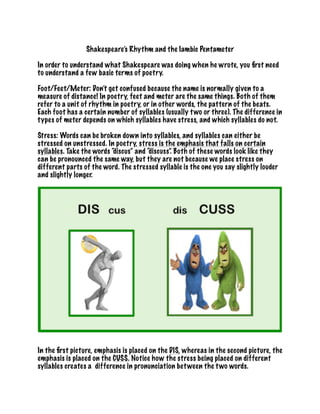This document discusses Shakespeare's invented expressions and archaic words, providing examples of expressions still used today and words that are no longer common. It also examines Shakespeare's less strict sentence structure compared to modern English and his use of iambic pentameter, noting he could rearrange words from subject-verb-object and use ten syllables with stress on every second syllable for his famous rhythmic lines.







